The Resurrection of Excelsior Park and the Inaugural Collection of Hand-Wound Chronographs
An important and historical name for chronographs is back from the ashes.
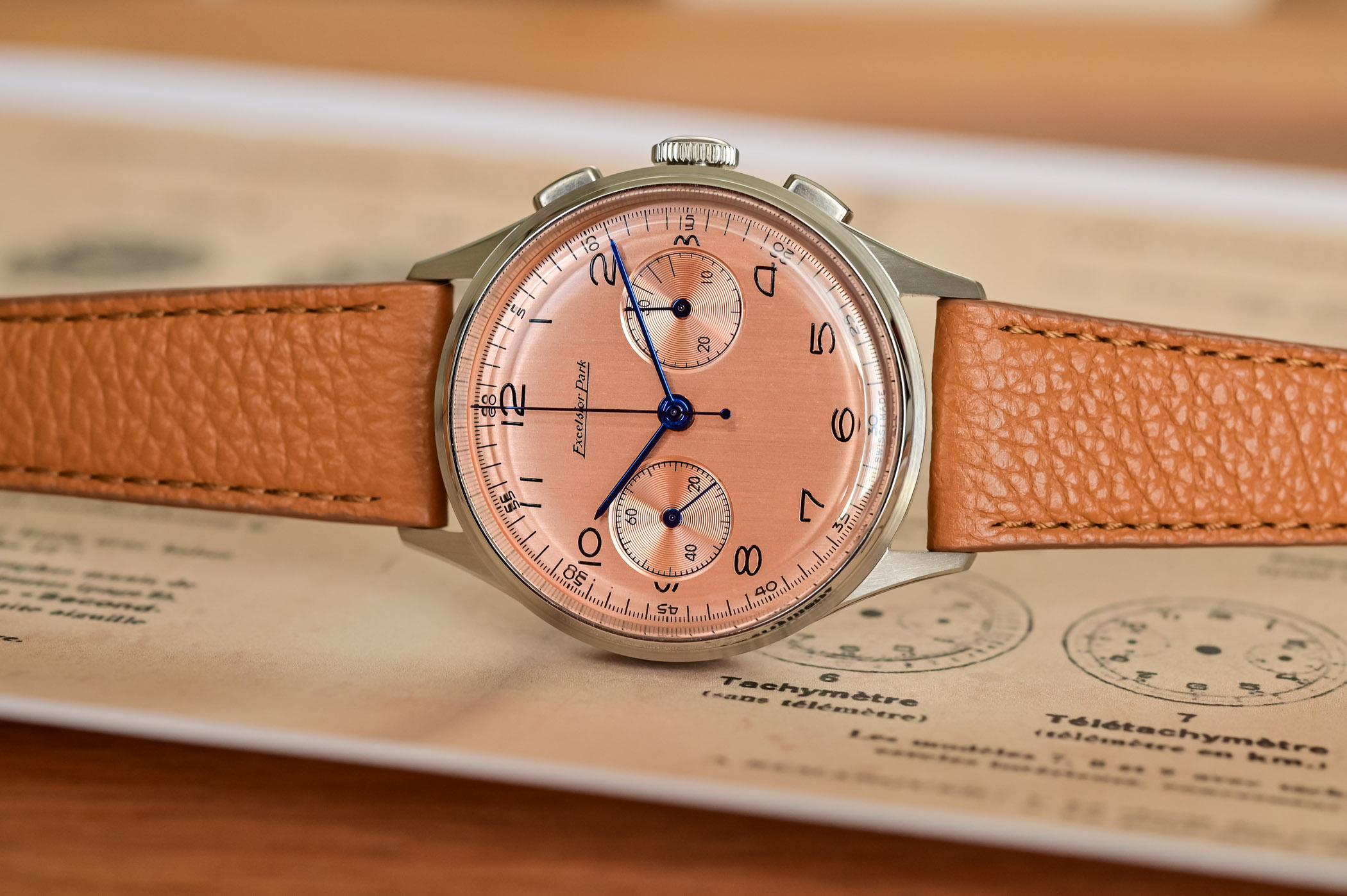
As we’ve said already on many occasions, there are mainstream brands, and then there are so-called niche brands that are mostly known by seasoned collectors… But don’t think this makes them less important. In fact, this might give these smaller, often undervalued historic names even more resonance and charm. One of them might ring a bell: Excelsior Park. A brand founded in 1866 and known as one of the pioneers of the chronograph, it fell into oblivion until this year. Thanks to Guillaume Laidet, the man behind the resurrection of Nivada, Excelsior Park presents its inaugural collection… And yes, these are vintage-oriented, charm-packed, hand-wound, attractively priced chronographs that will certainly speak to a seasoned audience.
Concise History of Excelsior Park
Excelsior was born in 1866 in the small but quite famous (at least if you’re into watches) town of St. Imier, Switzerland – also the hometown of Longines and the birthplace of Breitling. Founded as a watch movement company by Jules-Frederic Jeanneret, it would become Excelsior Park in 1891 (to appeal to English-speaking markets) and quickly became a prominent brand for chronograph movements and instruments. For years, it continued building its legacy by developing its own calibres, producing chronographs for every type of sports, and providing movements for other brands such as Girard-Perregaux, Gallet and Zenith, among others. Even though it was less famous than Zenith or Omega, the brand was of importance in the field of stopwatches and timing instruments for sports.
During the 1920s and 1930s, Excelsior Park claimed to be one of the most important Swiss sports chronometer manufacturers. The range consisted of tachometers, pulsometers, split-seconds, instruments for football, rugby, water polo, hockey, with ringtone for boxing, others for control with a rotating bezel and even for canoeing, motorsport, decimal stopwatches, others measuring the hundredth of a second… And of course, the brand also started to build chronograph wristwatches and to provide these smaller movements to renowned Swiss brands. The range included some specialized models such as the 1964 Yachting or the Excel-O-Graph, a chronograph supplied with a bidirectional bezel and slide rule. But what most will have in mind are the 1940s/1950s bi-compax chronographs with elegant designs that are today the base for the resurrection of the brand.
Like many Swiss manufacturers, Excelsior Park did not withstand the quartz crisis of the 1970s. Between 1983 and 1984, the company finally succumbed and disappeared. Fume, a German supplier of watchmaking tools, attempted to resurrect the brand and acquired the rights to the name in 1986. It manufactured a small series of chronographs bearing the name Excelsior Park. In particular, the Monte Carlo model, equipped with the Valjoux 7740. That episode didn’t last long and in 2020, after a short American interlude, Excelsior Park is back on track, and with a collection of cool-looking chronograph watches (of course…) For more details about the history of Excelsior Park, you can check out this section of the brand’s website.
The 2021 Excelsior Park Hand-Wound Chronograph Collection
For this new project, Guillaume Laidet had a slightly different approach than Nivada Grenchen. While the latter is built around faithful recreations of past, emblematic models – such as the Chronomaster, the Depthmaster or the Antarctic Spider – the first collection of Excelsior Park is not so much about recreating a specific model but more about taking the flair of historic watches and designing a watch that feels like part of the brand’s heritage, yet with modern execution. It’s more about vintage inspiration rather than vintage re-edition, if you can spot the difference. Does it diminish the cool factor and enthusiasm? Not much, actually, as the collection of five hand-wound chronographs (same base, different dials) is pretty convincing.
The new Excelsior Park Chronograph watches share a 1940s flair, corresponding to the golden era of elegant chronographs before these watches became proper instruments for racing or sports, like the Speedmaster or the Daytona. These watches were defined by simple and well-proportioned cases with a certain refinement, hand-wound movements, handsome dials with a touch of Art Deco influence and, overall, not the professional look focused on robustness that was found in the 1960s. And, to be honest, it’s quite refreshing to see these watches again. I love tool watches from the 1950s/1960s, but they are a bit more difficult to wear on a weekday. These Excelsior Park models aren’t…
As said above, the idea was not to remain entirely faithful to an original model but to bring a flair, an evocation of the past with more modern proportions (but not too much), materials and mechanics. The Excelsior Park Hand-Wound Chronographs are built around a slender, restrained and nicely dimensioned stainless steel case that measures a compact 38.9mm diameter. Also, with a height of 13mm, including a fairly high-domed sapphire crystal, the thickness is manageable, and the lug-to-lug measurement, at 47.5mm, isn’t small but again, totally manageable for my small wrist.
The case features a very thin bezel that leaves space for the dial and its indications. The lugs are slim and tapered, and so is the central case. To visually diminish the thickness, the bezel is double-stepped and features brushed and polished surfaces. The case is mostly brushed with only minor polished accents to elevate the look – on the side of the lugs, on the crown and for the nicely integrated long pushers. All in all, the case is nicely executed with a sense of quality and robustness, but also a certain elegance that only chronographs from this specific era had. On the wrist, these Excelsior Park are certainly present and relatively heavy, but also compact enough to be worn almost like a dress watch. The water-resistance is also quite comfortable, at 100 metres. And there are two options for the caseback, either a see-through one or, as shown presented here, a screwed solid steel back with an engraving of the brand’s logo – which I clearly recommend as it not only looks better but also feels more relevant in this historical context.
There will be no fewer than five different versions of this Excelsior Park Hand-Wound Chronograph at the launch, which could be divided into two groups. First are four dials with a grained texture, raised Arabic numerals, syringe hands with luminescent material and calculation tracks on the periphery – telemeter and tachymeter. This configuration is available in black, as presented here, with white printings and luminous Arabic markers (ref. EP95003). It is also available in white with black printings, numerals and hands (ref. EP95001), or in white with black printings and a combination of red and blue accents for the scales and the hands (ref. EP95000). Finally, this dial is also available in a warmer tone, with an off-white background and light brown numerals (ref. EP95002).
The fifth dial is completely different from the others in both display and finishing. To me, this is the most attractive of the lot (I love salmon dials…) even though the rest of the MONOCHROME team prefers the black version. The dial of this version is cleaner since only a minutes track is printed on the periphery. Also, the salmon (rose gold) colour is paired with a vertically brushed surface and black printed numerals with an undeniable Art Deco influence. Finally, the hands are non-luminous, blued steel batons. Also, no raised logo or numerals here, but a sleeker surface.
Under the hood and to keep the price reasonable, these new Excelsior Park Chronographs are going for a tried-and-tested engine, the well-known hand-wound Sellita SW510 – basically, a Valjoux 7750 architecture without the automatic bridge. This movement is relatively simple but also does perfectly the job in this context. It runs at a 4Hz frequency and stores a comfortable 63h power reserve (Sellita has upgraded its calibres recently). But since this isn’t the prettiest of movements, I’d opt for the closed caseback.
These new Excelsior Park watches are delivered on supple and pleasant leather straps with texture and closed by a steel pin buckle. They are fitted with quick-release spring bars and come in multiple colours (black, light brown, honey… depending on the dial).
Availability & Price
The 2021 Excelsior Park Hand-Wound Chronograph Collection will be offered direct to customers via the brand’s website. Pre-orders open in December and they will be priced at EUR 2,160.
For more details, please visit excelsiorparkwatches.com.

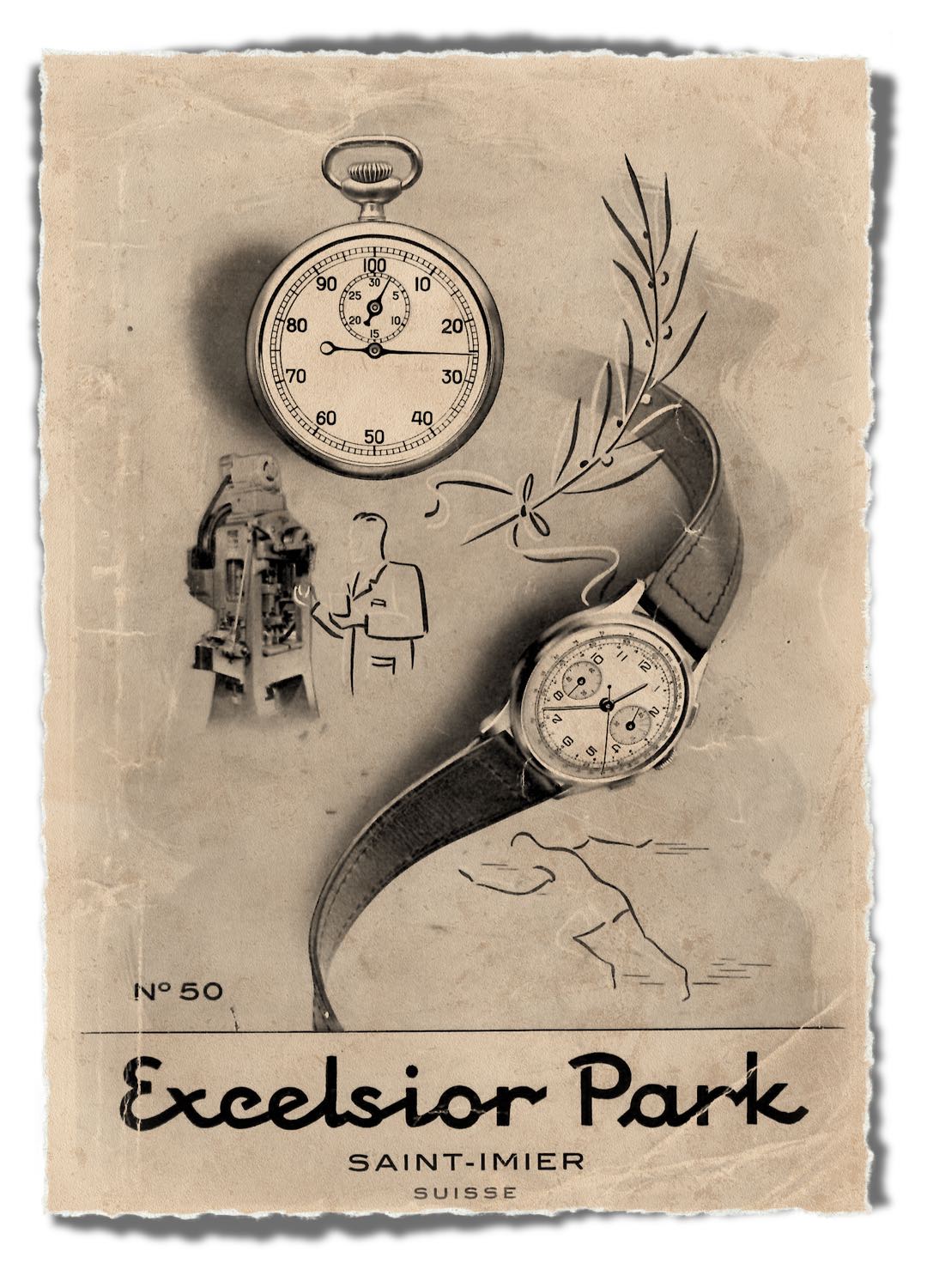
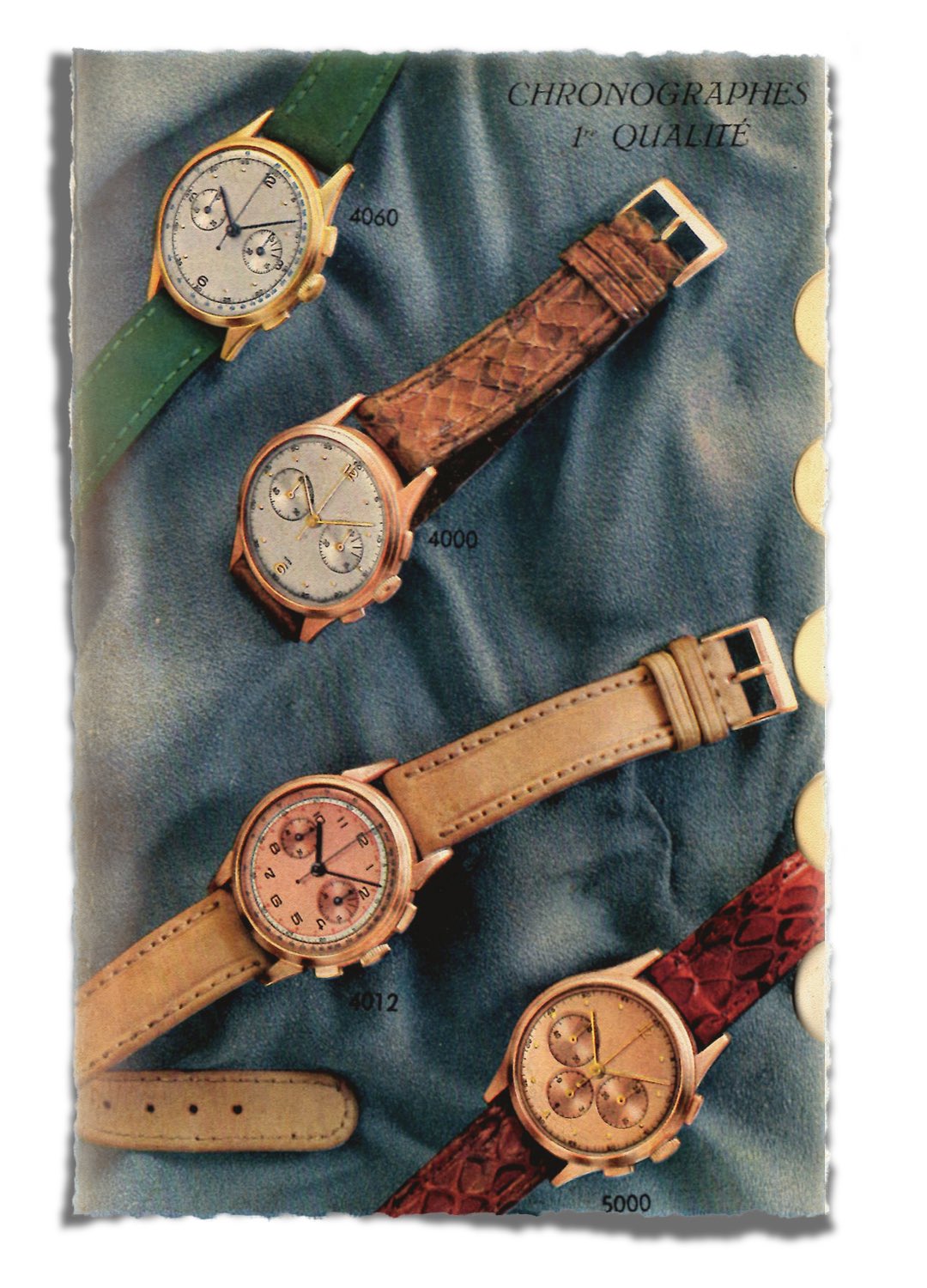
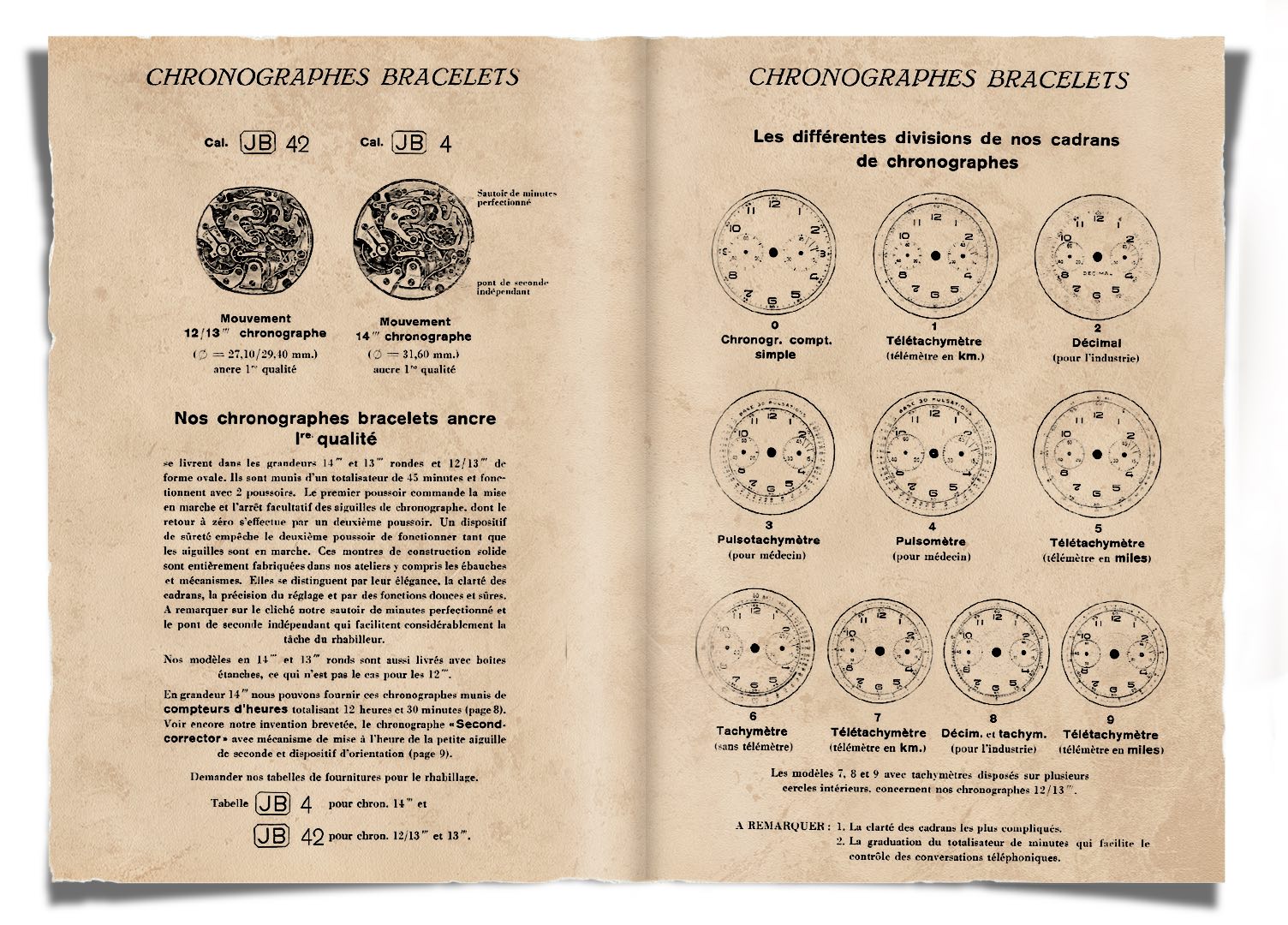
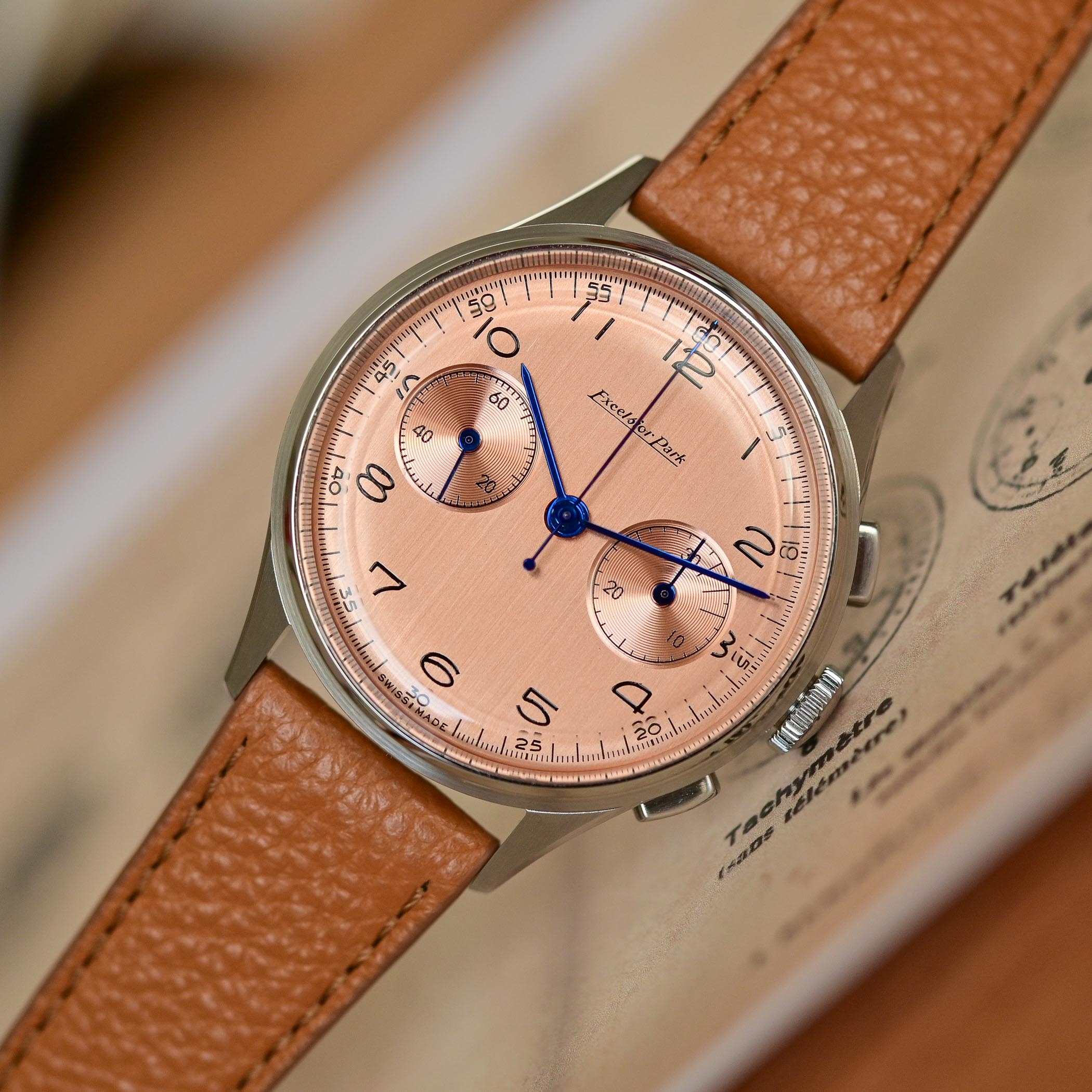
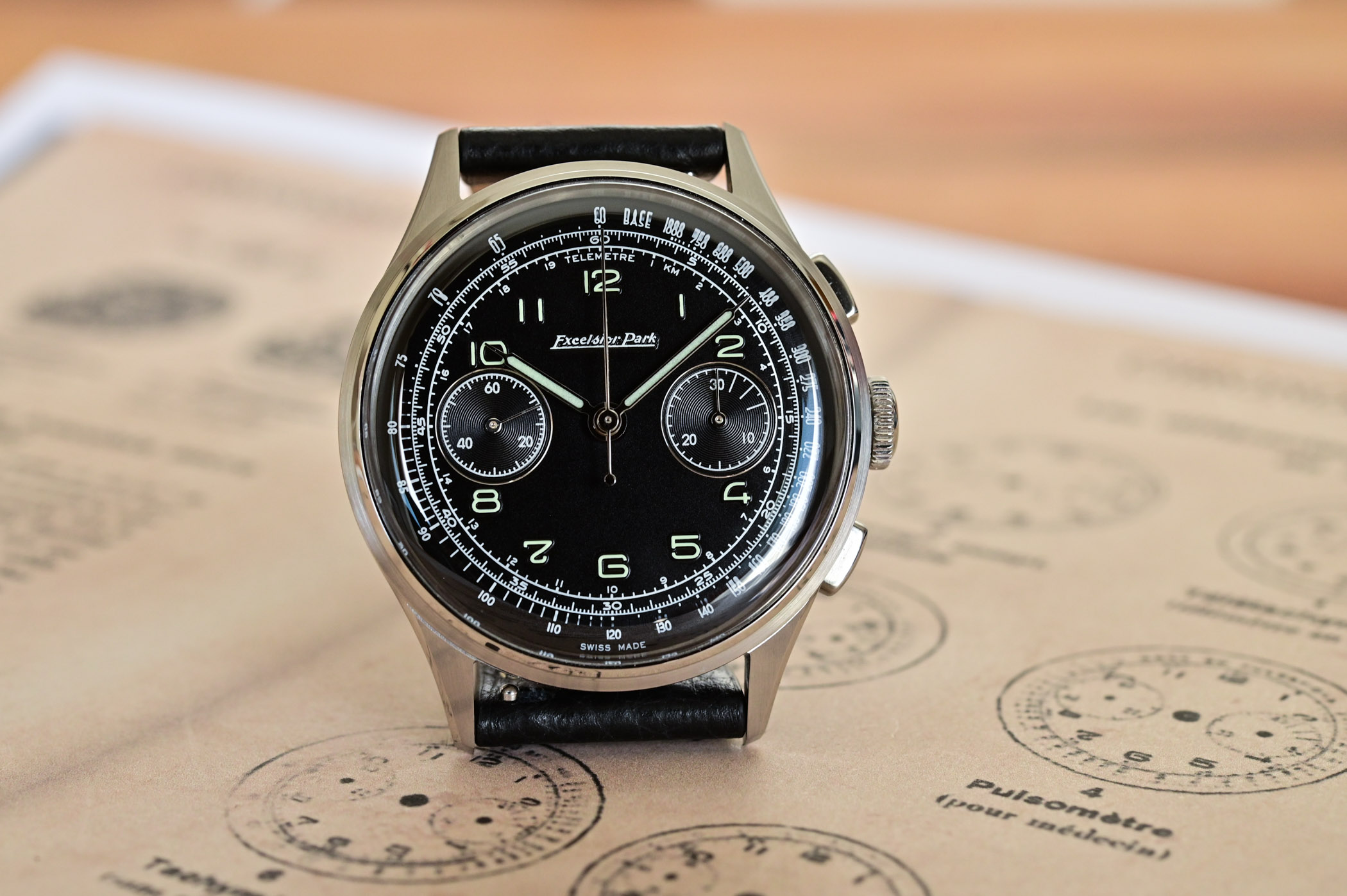
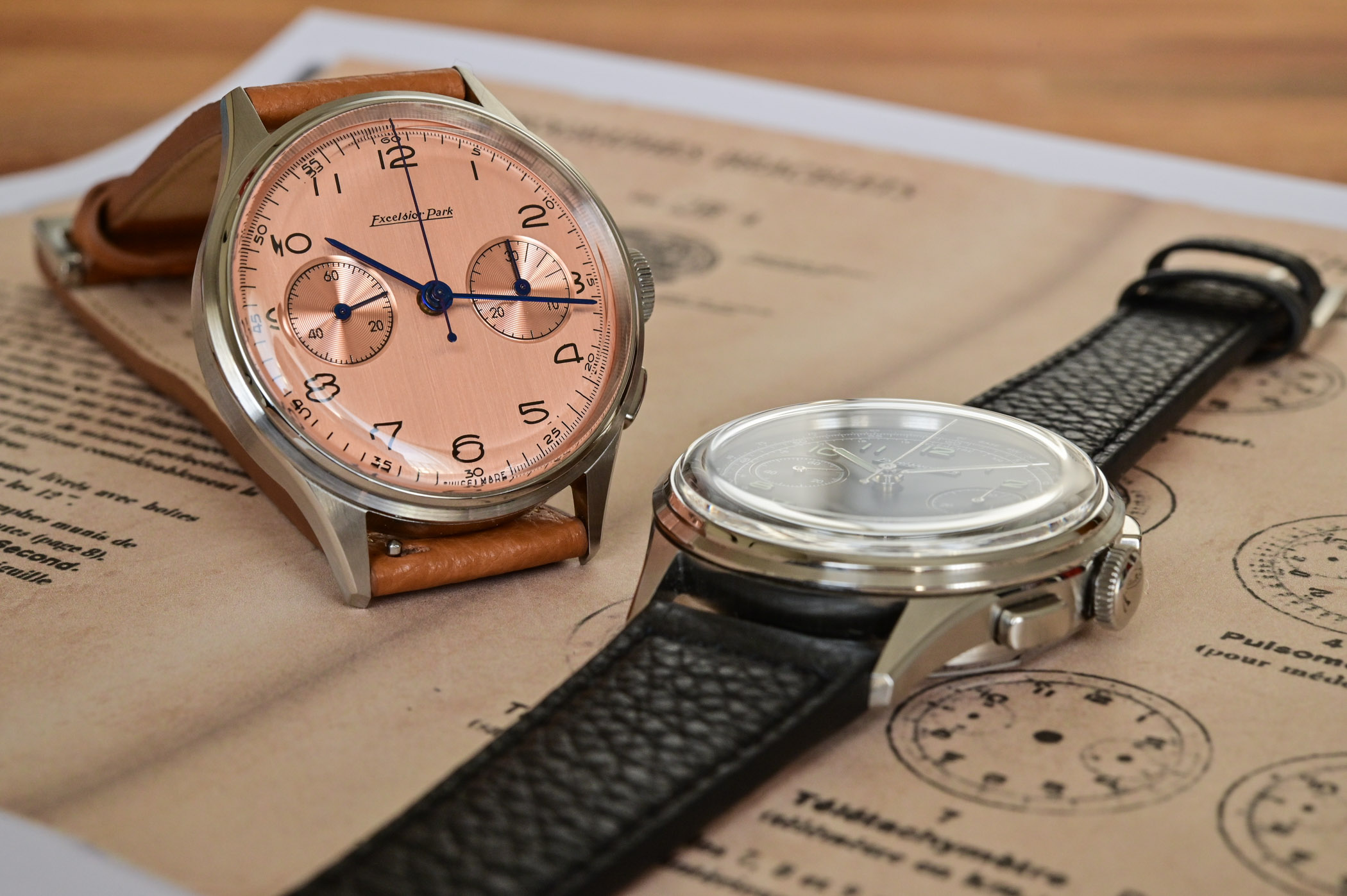
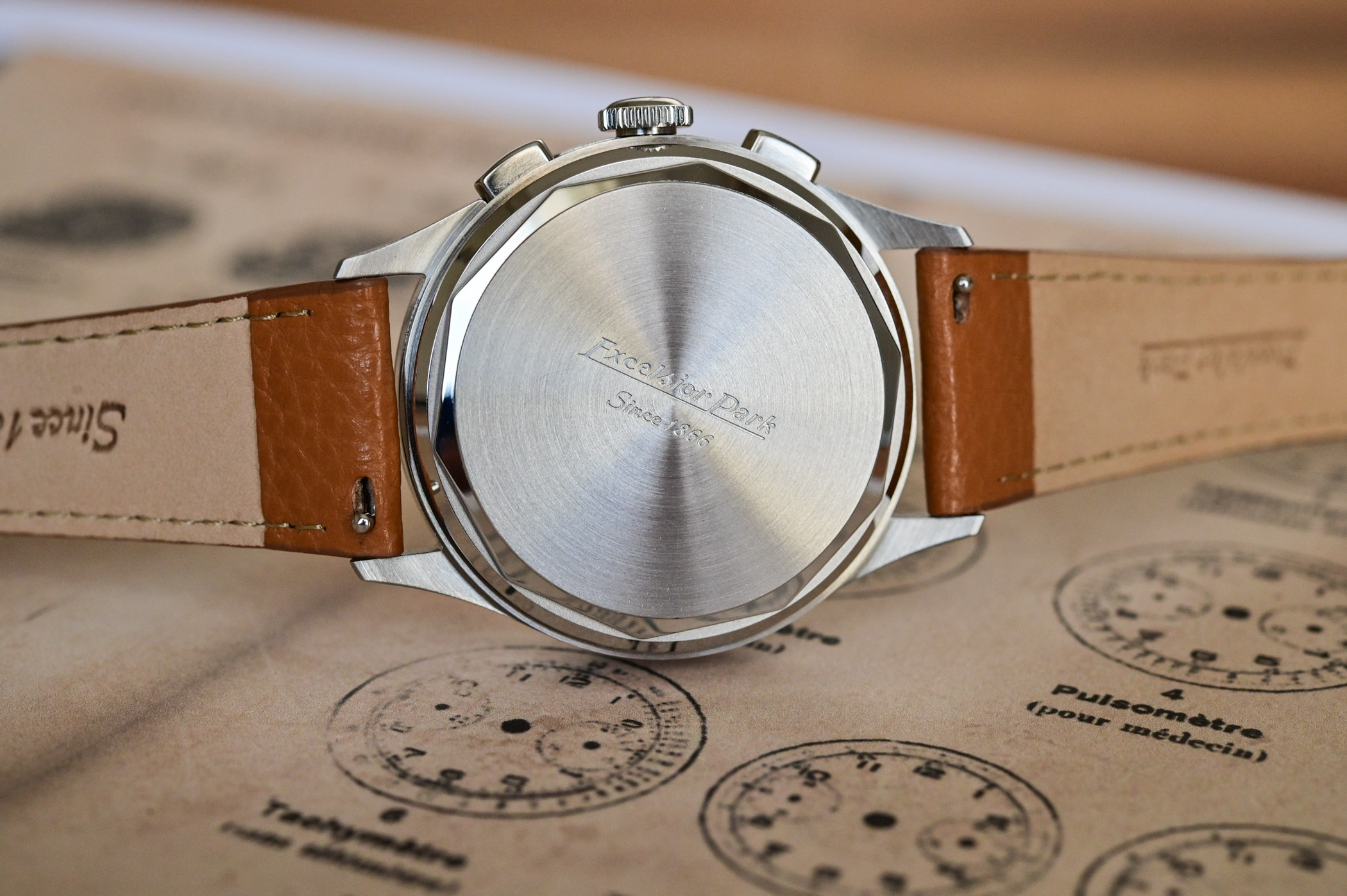
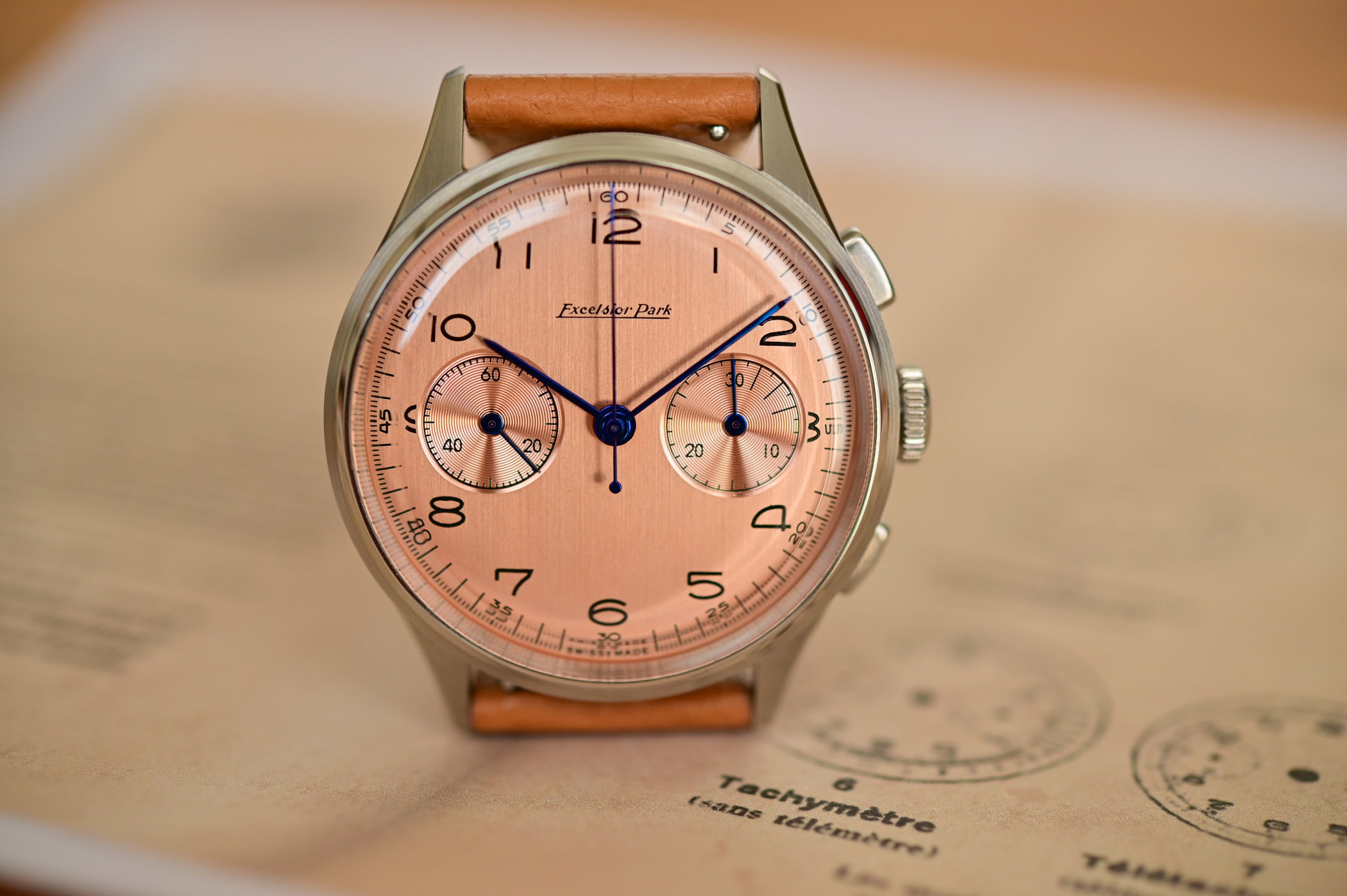
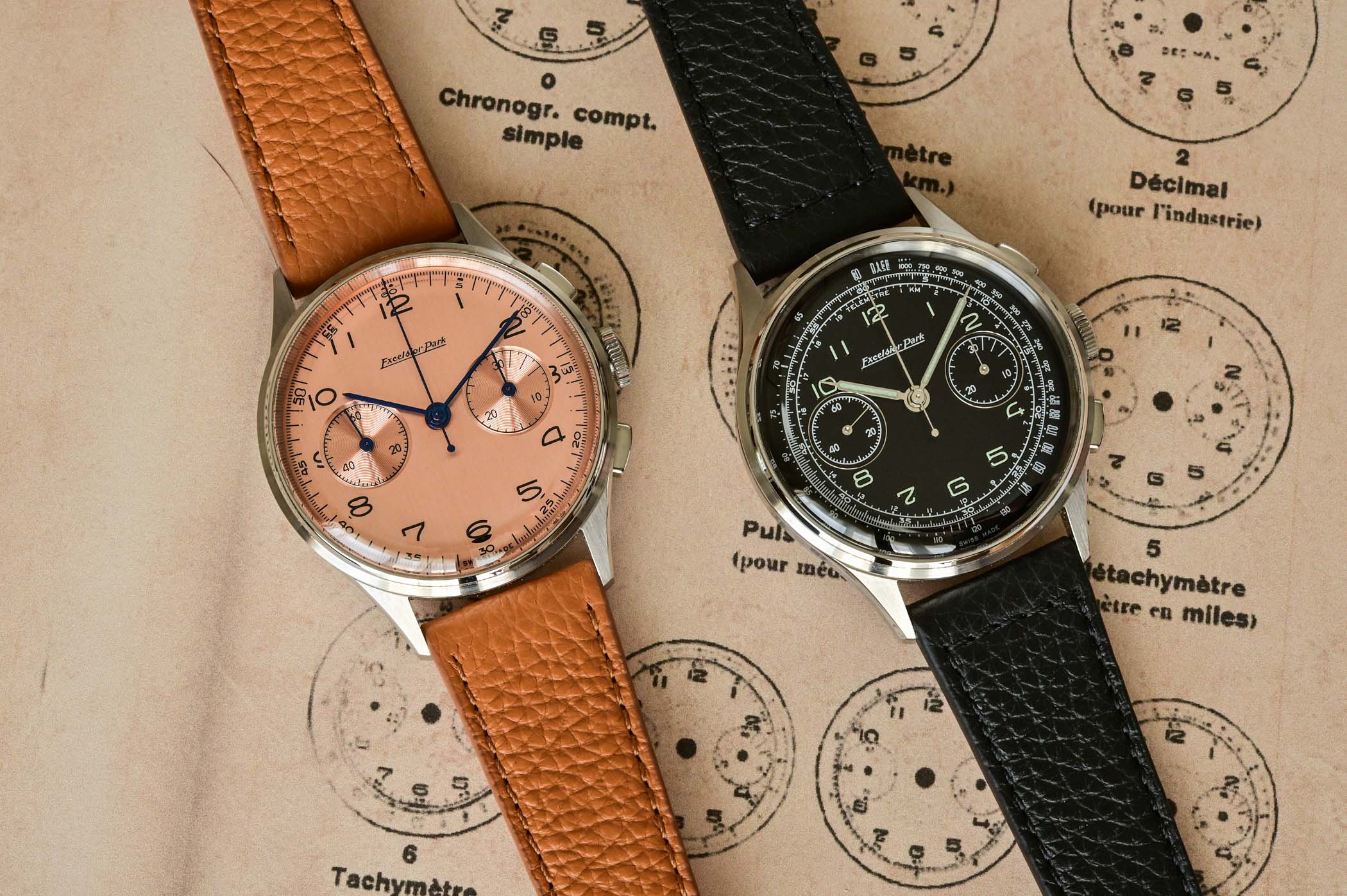
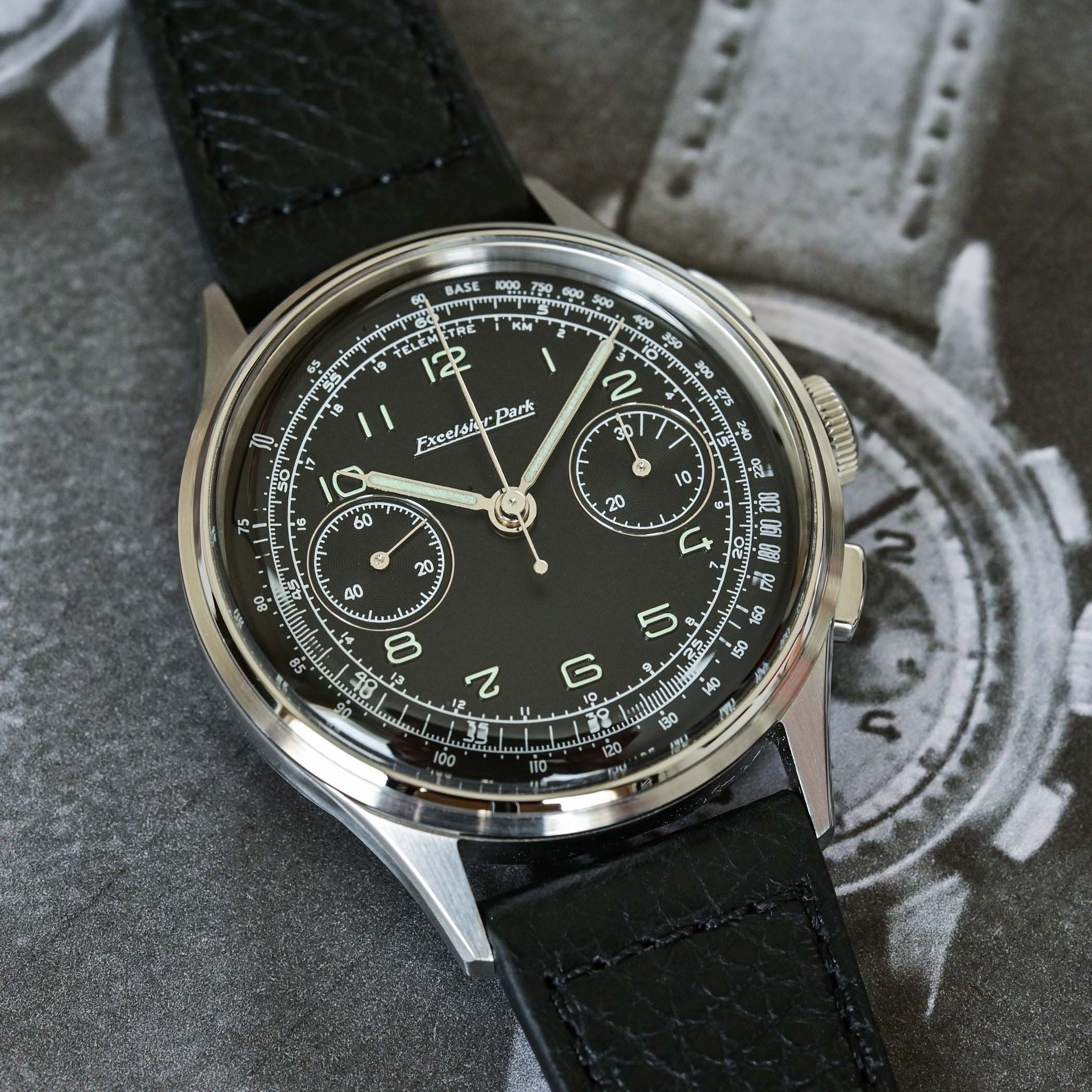
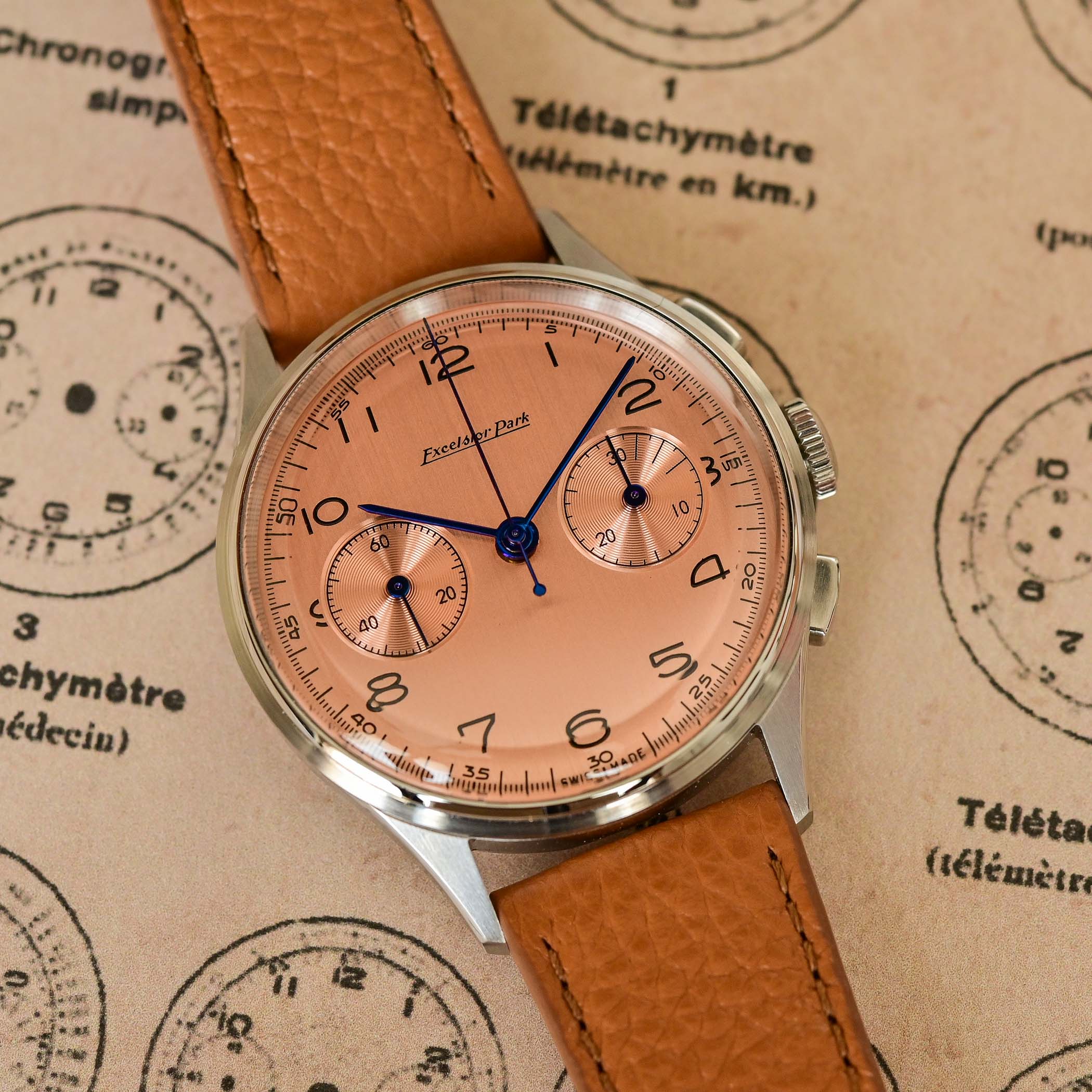
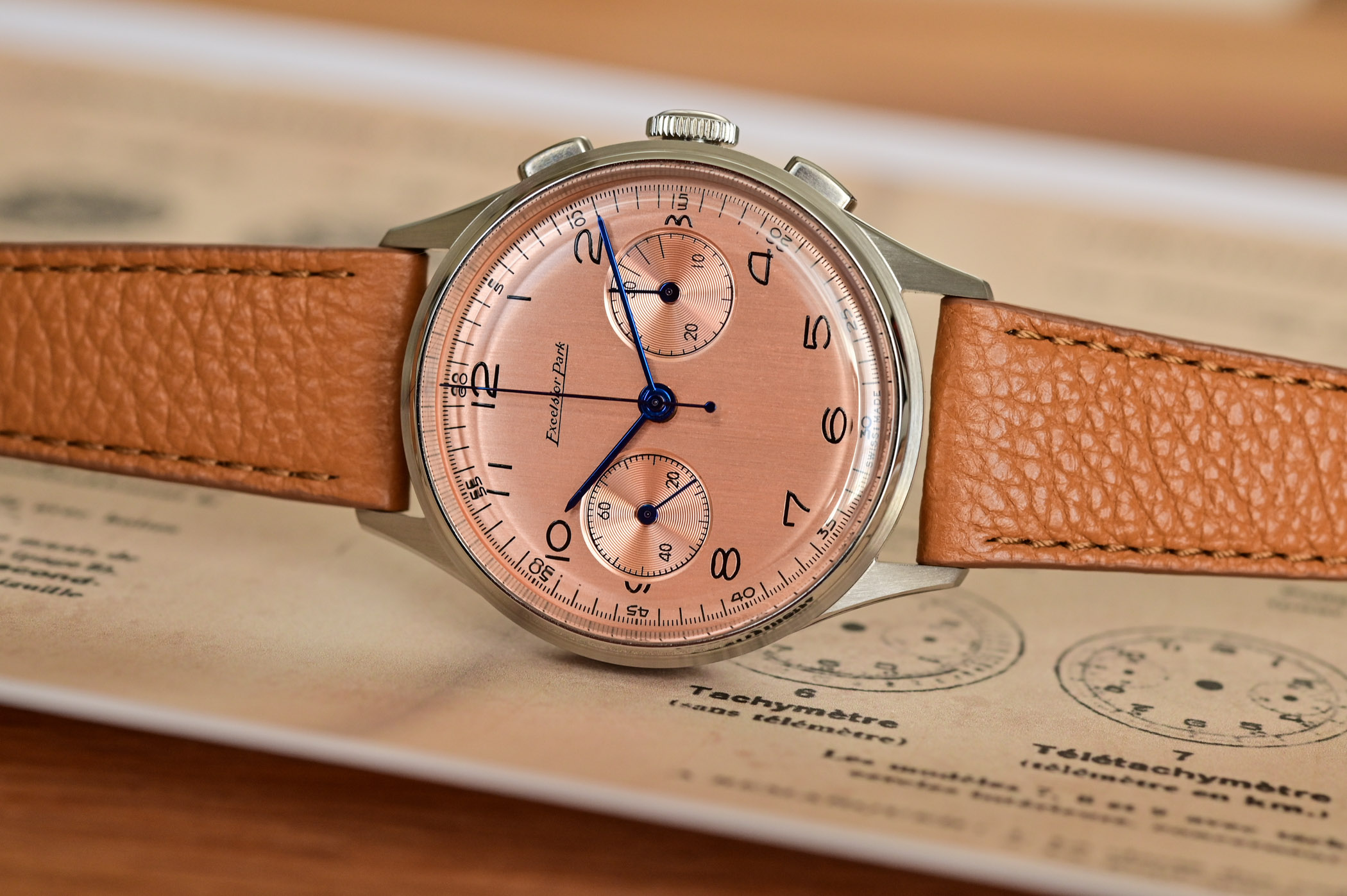
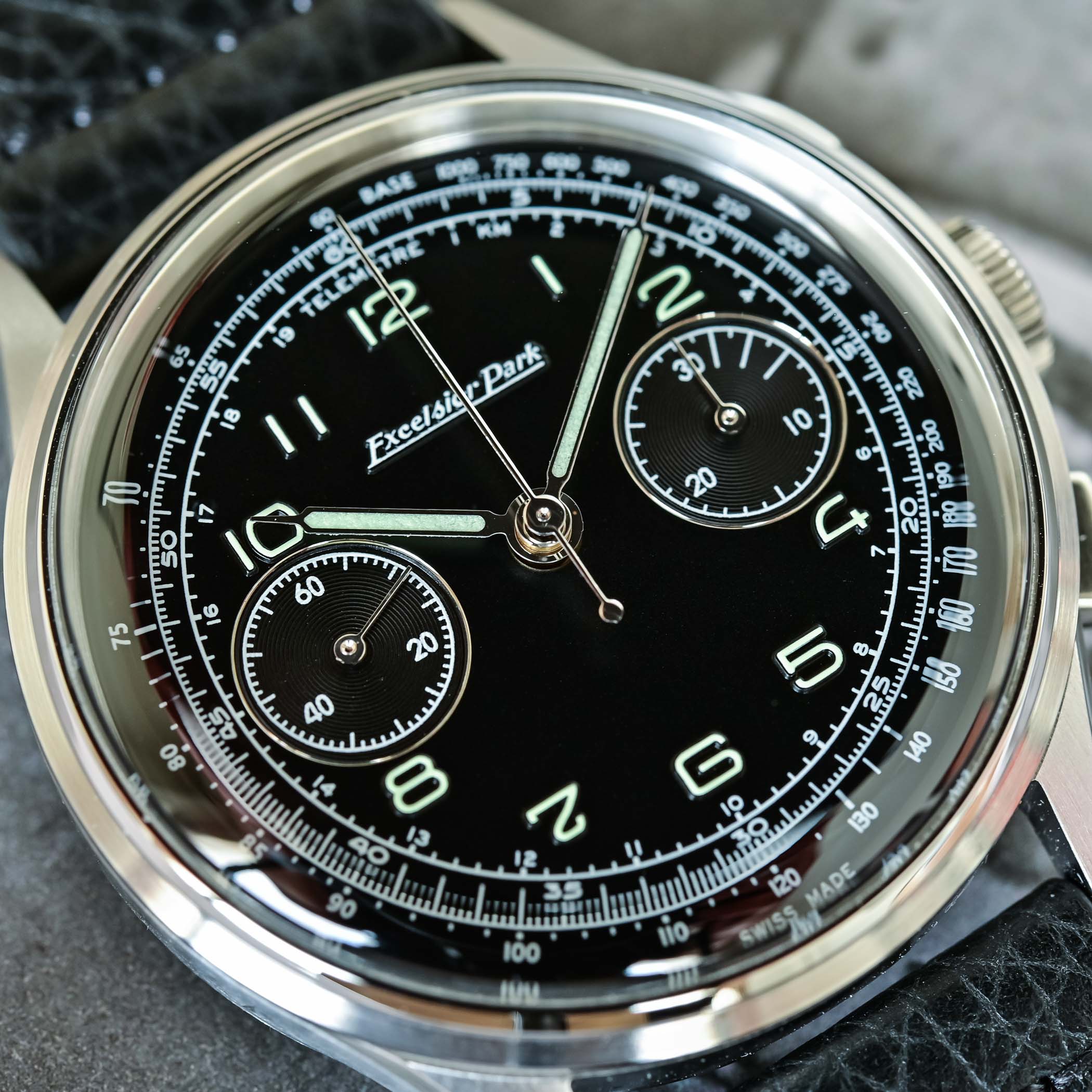
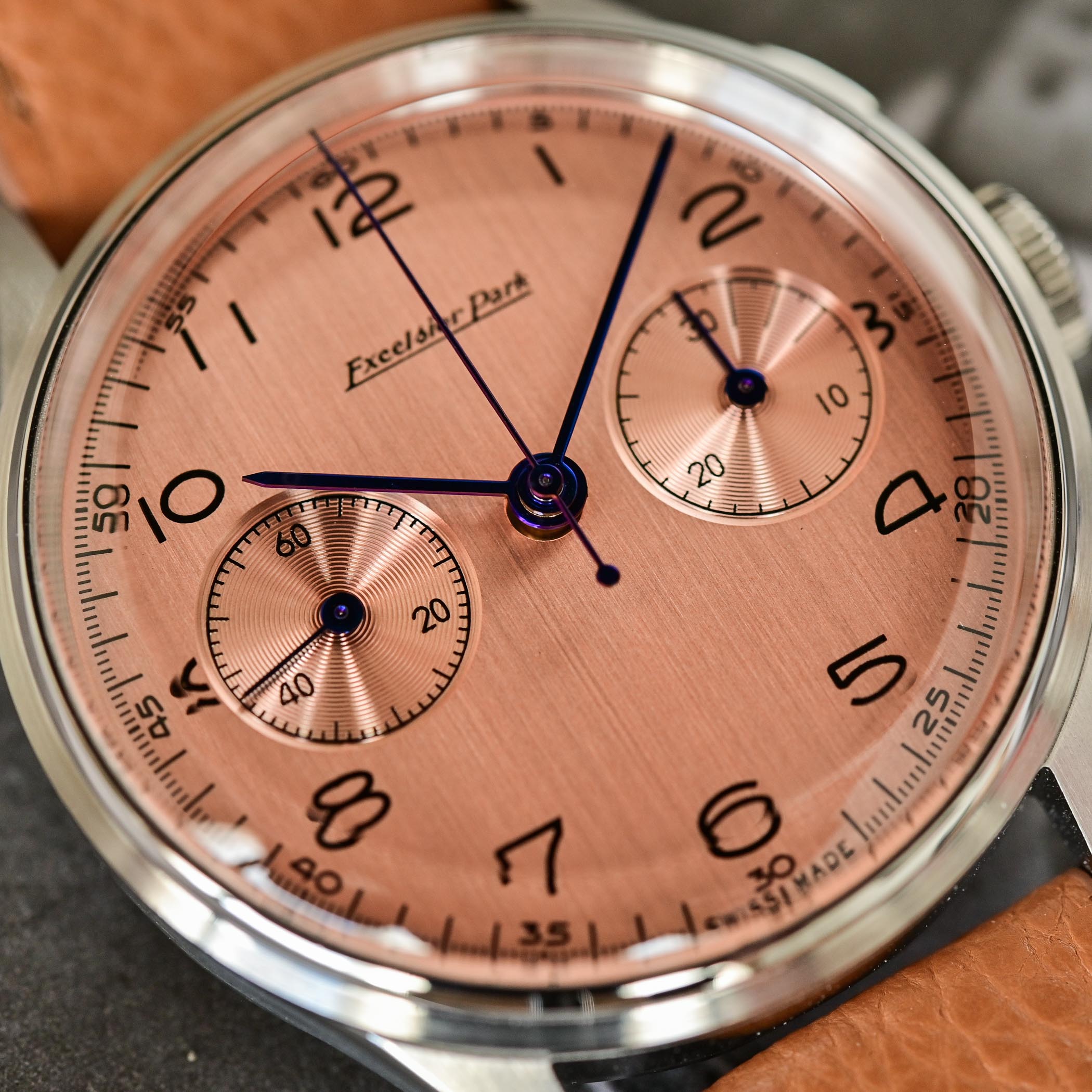
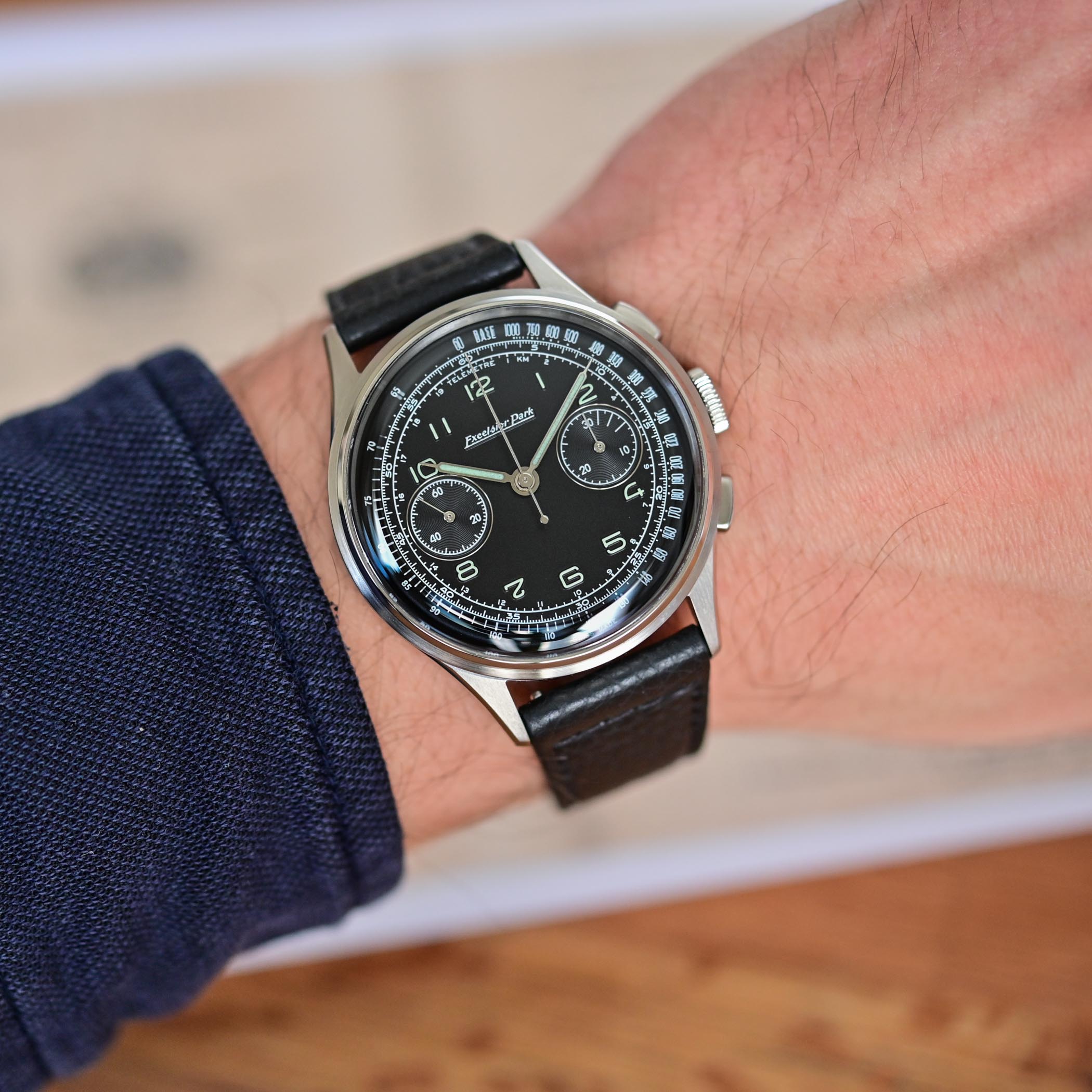
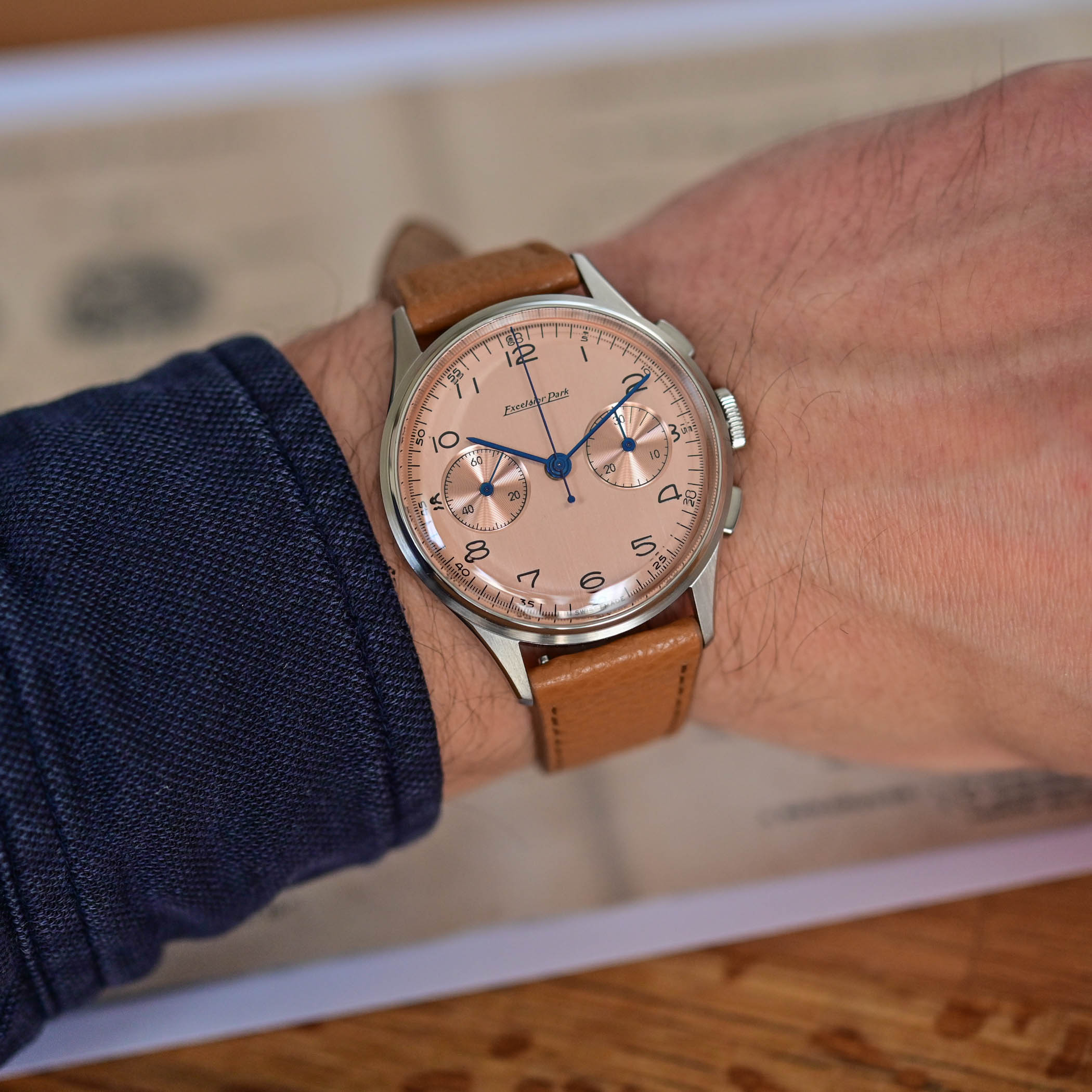



2 responses
Note to editor: in the section CONCISE HISTORY OF EXCELSIOR PARK you have their birth in 1966 instead of 1866…
Salmon dial for me.